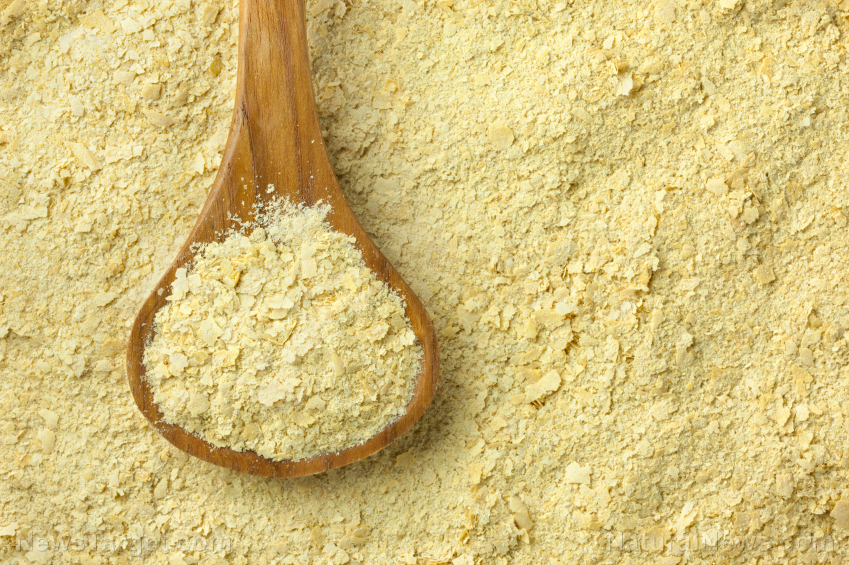Unique probiotic yeast can help prevent colorectal cancer, says study
07/27/2019 / By Ralph Flores

Pichia kudriavzevii, a probiotic yeast found in fermented dairy products and tea, potentially holds anti-cancer properties, according to researchers from Iran’s Tabriz University of Medical Science. The study, which appeared in the journal Nutrition Research, looked at the apoptotic effects of P. kudriavzevii As-12 supernatant – the residual liquid produced after centrifugation against different colorectal cancer cells – as well as the mechanism behind its anti-cancer activity.
For the study, the researchers tested whether the supernatant was toxic to colorectal cancer cells in vitro and found that those that were treated with metabolites from the P. kudriavzevii As-12 supernatant decreased significantly compared to control. The survival rates of the cancer cells after treatment were between 42.5 and 67.5 percent. In addition, the colorectal cancer cells also showed signs of shrinkage and death (apoptosis). The researchers observed that while the nuclei of the cancer cells were either condensed or fragmented – which indicated early or late apoptosis, respectively – this was not seen in normal cells that were exposed to the metabolites.
The ability of the metabolites to induce apoptosis was comparable to 5-FU (fluorouracil), a drug often used to treat colorectal cancer. Often used in chemotherapy, 5-FU was found to cause long-term brain damage, years after the treatment was completed. (Related: Cancer Drug Causes Permanent Brain Damage.)
The anti-cancer activity shown by P. kudriavzevii could be used to develop a natural agent that specifically targets colorectal cancer cells to induce apoptosis, the researchers proffered. In general, commercial chemotherapeutic drugs target cells indiscriminately, often leading to toxic, immunosuppressive, mutagenic, and carcinogenic side effects.
This also adds another strain to the growing list of probiotic yeasts, based on in vivo and in vitro studies. Another probiotic yeast that showed similar anti-cancer activity is Saccharomyces boulardii, a strain often used for treating harmful Candida overgrowth in the gut. Kluyveromyces marxianus BO399, a lactic yeast, modulated immune response and decreased pro-inflammatory cytokines.
In addition to its anti-cancer activity, P. kudriavzevii also possesses multiple biological activities, all of which have been widely studied. It can strengthen the gut from infectious agents by neutralizing bacterial toxins, improving the immune response of the mucosa, and modulating the cell proliferation signaling pathway of the host to prevent inflammation.
“Pichia kudriavzevii AS-12 secretion metabolites possess anticancer activity against human colorectal cancer cell lines,” the researchers wrote in their study.
Probiotics: not just bacteria
Most people associate probiotics to bacteria, that’s why they are referred to as “good bacteria.” While probiotic bacteria are indeed beneficial to the body, it’s worth noting that there are certain types of yeast that have probiotic potential. In an article in Alimentary Pharmacology and Therapeutics, researchers investigated S. boulardii to determine properties that are unique to probiotic yeast.
One of the traits of probiotic yeast that the researchers found to be advantageous is its ability to tolerate extreme stress. Many types of yeast can better handle differing pH levels than bacteria, with some being unaffected by highly acidic environments. This makes them great at handling issues in the gastrointestinal (GI) tract.
The article found that S. boulardii, when mixed with Lactobascillus acidophilus and Bifidobacterium bifidum, showed significant efficacy against pathogens in traveler’s diarrhea. It was also found to be effective against acute diarrhea in children, which can lead to life-threatening cases of dehydration, after only four days.
AntiCancer.news has more on foods that help keep cancer at bay.
Sources include:
Submit a correction >>
Tagged Under:
This article may contain statements that reflect the opinion of the author
RECENT NEWS & ARTICLES
COPYRIGHT © 2017 SUPER FOODS NEWS





















